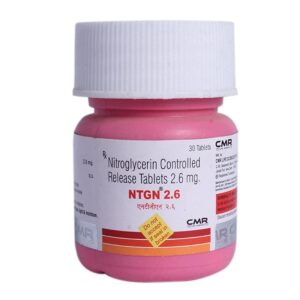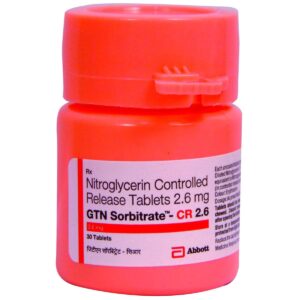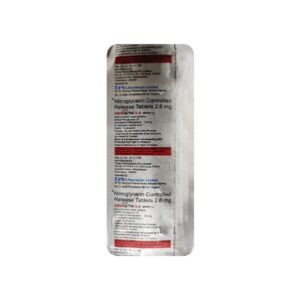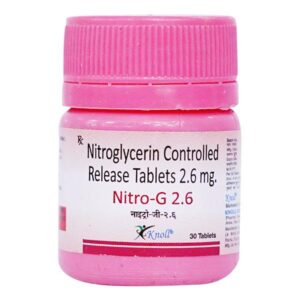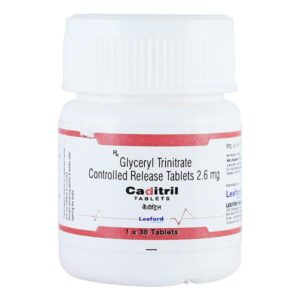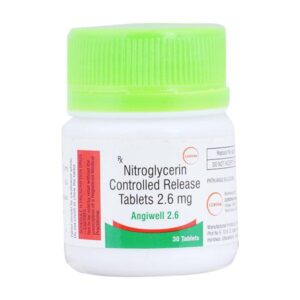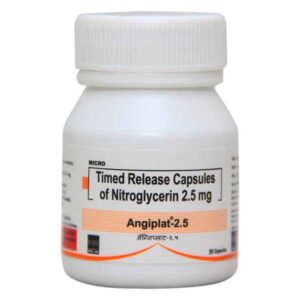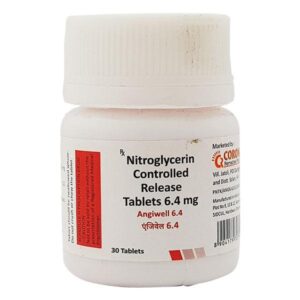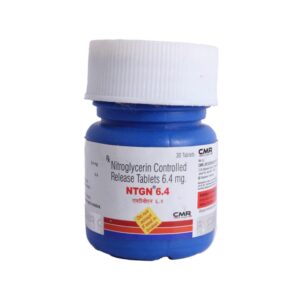NITROGLYCERIN
NITROGLYCERIN: NITROGLYCERIN is a medication primarily used to treat and prevent chest pain (angina) caused by coronary artery disease. It belongs to a class of drugs called nitrates. Nitroglycerin works by relaxing the smooth muscles in the blood vessels, causing them to dilate. This dilation helps to increase blood flow and oxygen supply to the heart, relieving chest pain.
NITROGLYCERIN is commonly administered as a sublingual tablet or spray. The usual dose for the relief of acute angina symptoms is one tablet or spray (0.3 to 0.6 mg) placed under the tongue when needed. If the pain persists after 5 minutes, another dose may be taken. The maximum recommended daily dose is typically around three doses. Nitroglycerin can also be administered as a transdermal patch, ointment, or intravenous infusion in hospital settings for the prevention and control of angina attacks.
As with any medication, NITROGLYCERIN may cause side effects. Common side effects include headache, dizziness, lightheadedness, flushing, and low blood pressure. These symptoms are usually mild and short-lived. However, if they persist or worsen, medical attention should be sought.
It is important to note that NITROGLYCERIN should not be used in certain situations, such as when taking erectile dysfunction medications like Viagra (sildenafil) or Cialis (tadalafil), as the combination can cause a severe drop in blood pressure. Additionally, patients with a history of allergies to nitrates or active use of certain drugs (such as riociguat) should avoid using nitroglycerin.
NITROGLYCERIN is a potent medication that should be used under the guidance of a healthcare professional. It is important to follow the prescribed dosage, avoid sudden discontinuation, and store the medication properly to maintain its efficacy.

